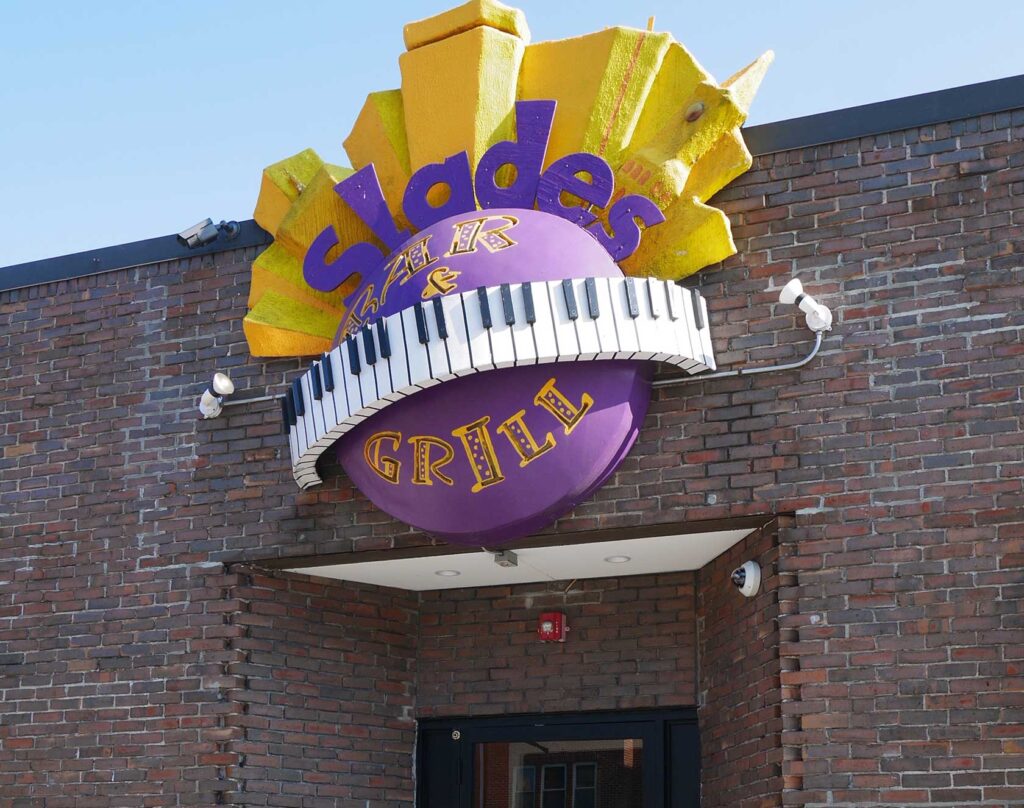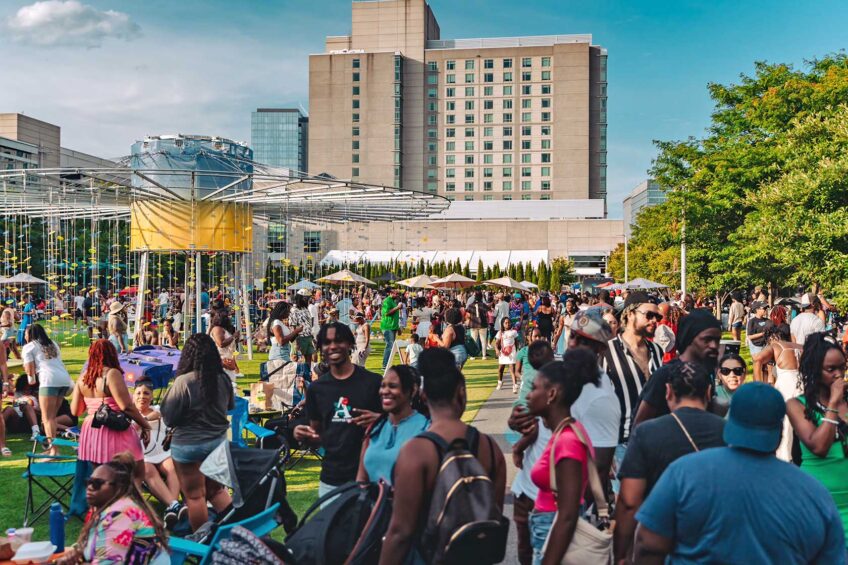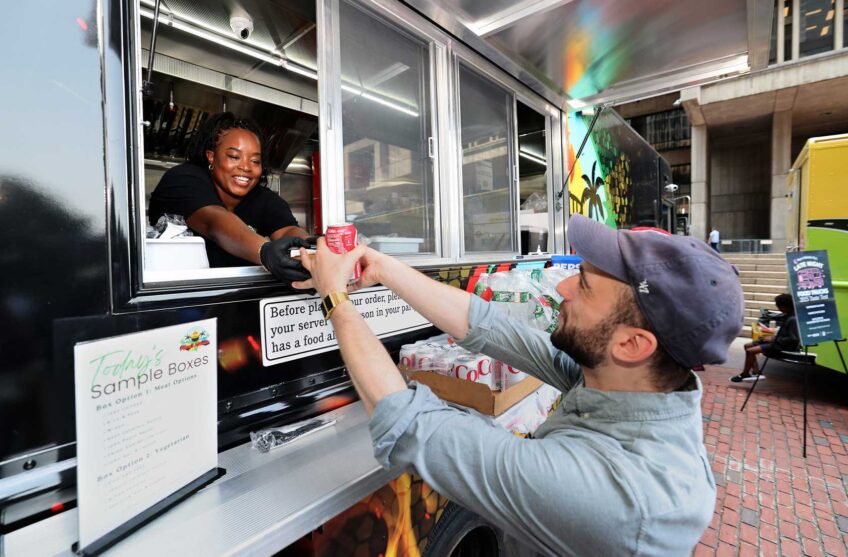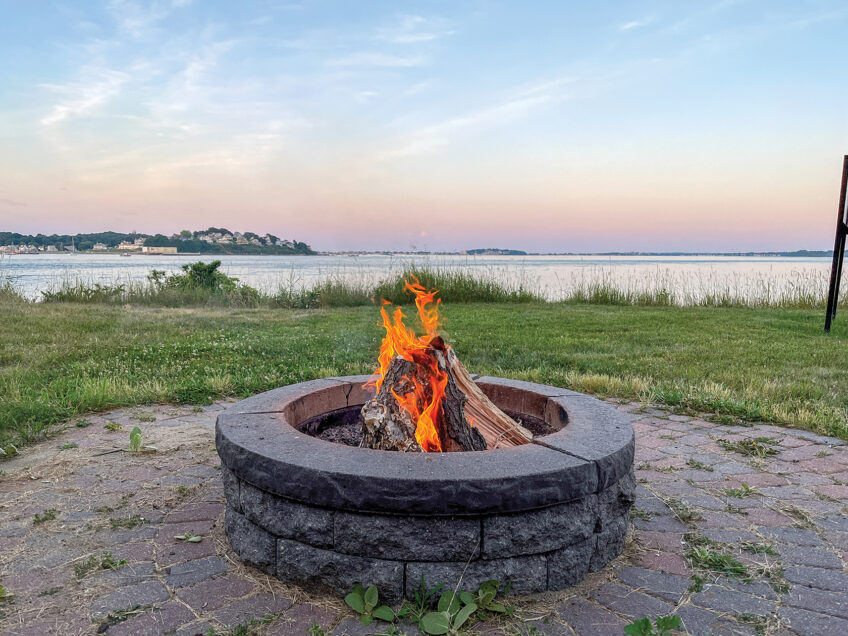
Banner Food & Travel Sponsored by Meet Boston
Five years ago, father-daughter duo Leo and Britney Kyle Papile made the decision to become the owners of Slade’s Bar & Grill on Tremont Street in the South End.
This is no ordinary restaurant. It has a legacy. It was established in 1928 by Renner Slade, who came from North Carolina where his grandfather Benjamin Slade was well known for barbecuing.
Fast forward to Renner, who was about 18 years old and had the entrepreneurial spirit, too. He first moved from North Carolina to Pennsylvania and started a big soap chemical business. Unfortunately, his company’s property caught fire.
Thankfully, he had an insurance claim, which left him with $700. But he and his wife divorced. Looking to start over, Renner went to Boston and invested his remaining funds into what he knew best — barbecuing. He opened a two-table, seven-chair restaurant called Slade’s Barbecue and became well known for serving rotisserie chicken out of the window.
Renner was able to launch and run three locations of the restaurant in the Lower Roxbury/South End area and his business skyrocketed.
By 1940, his customers were more than 90% white, which was unheard of during this period. He had 100 staff members, most of them Black, and he owned a chicken farm and a truck farm in New Hampshire — doing what is now known as farm to table — growing his own vegetables and raising fresh chicken.
Ultimately, Renner closed the two smaller restaurants to focus on the 958 Tremont Street location. Known as “Boston’s King of Barbeque,” Renner catered huge events, serving up to 5,000 people at a time, barbecuing ox or lamb just like his grandfather Benjamin Slade.
After Renner passed away in 1945, his daughter went on to run the restaurant. Then in the 1960s, NBA Boston Celtics basketball player Bill Russell became the owner during the Civil Rights movement.
While Russell was the owner, he brought his friends, including Muhammad Ali and fellow Celtics players, to dine at Slade’s. Russell also put in a stage and introduced live jazz.
By the 1960s, Slade’s restaurant became a popular location for the Black community and earned a place in the Green Book, formally titled “The Negro Motorist Green Book,” a travel guide created during the Jim Crow segregation era for Black people to use to find hotels, restaurants and other services that did not discriminate.
After several other Black men entrepreneurs took on ownership of Slade’s, the restaurant found its way to the Fernando brothers, who were the proprietors until 2017.
That was when Leo Papile, Terryl Calloway and Darryl Settles bought Slade’s. Then, in 2019, the Papiles bought out Calloway and Settles, becoming the sole owners.
Britney Kyle Papile spoke about how it feels to be the keeper of the historic establishment today. She recalls a time when a gentleman sent a letter to the restaurant with one of the menus from the 1940s.
The letter writer said his mother was a server there while she was a college student at Harvard, and she talked about the restaurant and Boston often. His mother has since died; in honor of her 80th birthday, he wants to bring his daughters to the city and dine at Slade’s — requesting a reservation for six people in 2027.
“How many restaurants will have a patron that doesn’t live in Boston, has never been to your establishment, has a story that personal (and) … is trying to make a reservation for three years out?” she said. “That’s the level of intimacy and rich memories that Slade’s has.”
The current menu has some similarities to that 1940s menu, including the classic chicken dinner. All the food that Slade’s serves is made from scratch and can take hours to prepare to perfection.
“Folks are coming in at 7 a.m. to get this going, so that it’s fresh every day,” Papile said. “It’s really a labor of love.”
Papile also shared what she believes makes the customers loyal to the legendary restaurant — the one-of-a-kind family atmosphere. A restaurant with such a long history comes with high expectations, but at the end of the day it’s all about good food and strong community.
“These people are coming to Slade’s, and they know what they like, and we got to deliver,” said Papile. “As a young Black woman from the South End, it’s really nice to be able to make the majority of my demographic happy. … It’s my community.”







Leave a Reply
You must be logged in to post a comment.